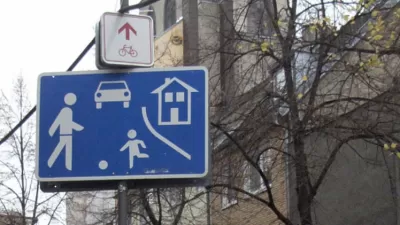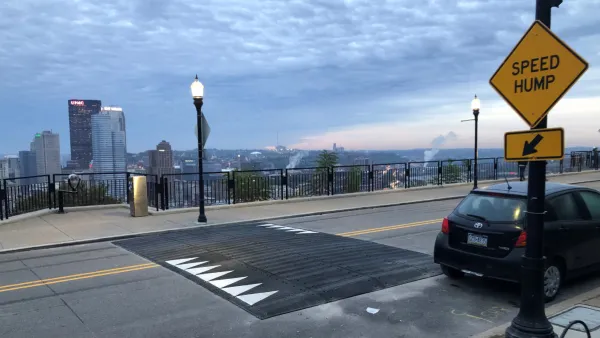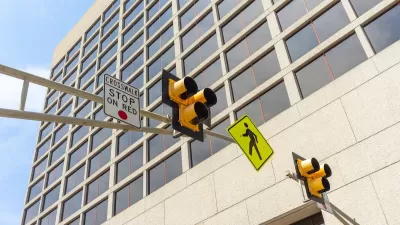Like other city and state leaders, Denver’s city council will weigh a proposal to decriminalize jaywalking in an effort to reduce interactions with law enforcement and improve transportation equity.

Pedestrian advocates in Denver, Colorado are pushing the city to decriminalize jaywalking, which is not illegal in most of the state. As Conor McCormick-Cavanagh writes in Westword, “State law does prohibit pedestrians from jaywalking when they're between two traffic control lights; in those cases, they need to pick one of the crosswalks.”
Advocates say pedestrians should be able to cross streets mid-block, when conditions are safe, and that jaywalking citations overwhelmingly impact some of the city’s most vulnerable residents. Jacob Smith, the Denver-based senior director for National Organizations for Youth Safety, said, “It’s a no-brainer for us to be able to, one, stop unnecessary interactions between law enforcement, but then also make our laws and streets more accessible for many folks who are not just walking...[but] rolling on the streets as well.” Advocates in other parts of the country have used similar arguments to support decriminalization.
According to City Council President Jamie Torres, “We just don’t want this to be an enforcement priority. A lot of the really terrible accidents that occur and terrible deaths that occur, they’re still at intersections. This isn’t really something that puts more people at risk in my district when it comes to street safety.”
Three city councilmembers are working to introduce a measure to the council in the next two months. According to the article, “The policy shift would also make it legal for people in wheelchairs to use the street when a sidewalk is too damaged or obstructed to use.”
FULL STORY: Jaywalking Is Illegal in Denver. Is It Time to Change That Law?

Maui's Vacation Rental Debate Turns Ugly
Verbal attacks, misinformation campaigns and fistfights plague a high-stakes debate to convert thousands of vacation rentals into long-term housing.

Planetizen Federal Action Tracker
A weekly monitor of how Trump’s orders and actions are impacting planners and planning in America.

Chicago’s Ghost Rails
Just beneath the surface of the modern city lie the remnants of its expansive early 20th-century streetcar system.

Bend, Oregon Zoning Reforms Prioritize Small-Scale Housing
The city altered its zoning code to allow multi-family housing and eliminated parking mandates citywide.

Amtrak Cutting Jobs, Funding to High-Speed Rail
The agency plans to cut 10 percent of its workforce and has confirmed it will not fund new high-speed rail projects.

LA Denies Basic Services to Unhoused Residents
The city has repeatedly failed to respond to requests for trash pickup at encampment sites, and eliminated a program that provided mobile showers and toilets.
Urban Design for Planners 1: Software Tools
This six-course series explores essential urban design concepts using open source software and equips planners with the tools they need to participate fully in the urban design process.
Planning for Universal Design
Learn the tools for implementing Universal Design in planning regulations.
planning NEXT
Appalachian Highlands Housing Partners
Mpact (founded as Rail~Volution)
City of Camden Redevelopment Agency
City of Astoria
City of Portland
City of Laramie





























